Contents
Guide

Ernestine L. Rose
Ernestine L. Rose
To Change a Nation
Joyce B. Lazarus
HAMILTON BOOKS an imprint of Rowman & Littlefield
Lanham Boulder New York London
Published by Hamilton Books
An imprint of The Rowman & Littlefield Publishing Group, Inc.
4501 Forbes Boulevard, Suite 200, Lanham, Maryland 20706
www.rowman.com
86-90 Paul Street, London EC2A 4NE, United Kingdom
Copyright 2022 by The Rowman & Littlefield Publishing Group, Inc.
All rights reserved . No part of this book may be reproduced in any form or by any electronic or mechanical means, including information storage and retrieval systems, without written permission from the publisher, except by a reviewer who may quote passages in a review.
British Library Cataloguing in Publication Information Available
Library of Congress Cataloging-in-Publication Data
Names: Lazarus, Joyce Block, author.
Title: Ernestine L. Rose : to change a nation / Joyce B. Lazarus.
Description: Lanham : Hamilton Books, an imprint of Rowman & Littlefield, [2022] | Includes bibliographical references and index. | Summary: Ernestine L. Rose: To Change a Nation relates the life of Ernestine L. Rose (18101892), a fearless human rights activist who fought for racial equality, womens rights and religious freedom. As America continues to struggle to live up to its democratic principles, Ernestine Roses words are more relevant than ever Provided by publisher.
Identifiers: LCCN 2022023637 (print) | LCCN 2022023638 (ebook) | ISBN 9780761873426 (paperback) | ISBN 9780761873433 (epub)
Subjects: LCSH: Rose, Ernestine L. (Ernestine Louise), 18101892. | Women social reformersUnited StatesBiography. | FeministsUnited StatesBiography. | Womens rightsUnited statesHistory19th century. | CYAC: JewsUnited StatesBiography.
Classification: LCC HQ1413.R6 L39 2022 (print) | LCC HQ1413.R6 (ebook) | DDC 303.48/4092 [B]dc23/eng/20220629
LC record available at https://lccn.loc.gov/2022023637
LC ebook record available at https://lccn.loc.gov/2022023638
 The paper used in this publication meets the minimum requirements of American National Standard for Information SciencesPermanence of Paper for Printed Library Materials, ANSI/NISO Z39.48-1992.
The paper used in this publication meets the minimum requirements of American National Standard for Information SciencesPermanence of Paper for Printed Library Materials, ANSI/NISO Z39.48-1992.
Copyright 2022. Hamilton Books. All rights reserved. May not be reproduced in any form without permission from the publisher, except fair uses permitted under U.S. or applicable copyright law.
EBSCO Publishing : eBook Collection (EBSCOhost) - printed on 9/18/2022 2:20 AM via
AN: 3346194 ; Joyce B. Lazarus.; Ernestine L. Rose : To Change a Nation
Account: s4881343
- .
EBSCOhost - printed on 9/18/2022 2:20 AM via . All use subject to https://www.ebsco.com/terms-of-use
My interest in Ernestine Rose began several years ago as I thought about the many crises facing our nation: our democracy has been under siege, we lived through a violent insurrection on January 6, 2021 to overturn a democratic election, we are reckoning with systemic racism, and we are in the midst of a global pandemic. These crises led me to me to study American history, to better understand how human rights activists from an earlier century fought against social inequities and racism during turbulent times.
My daughter and son-in-law, Suzanne and Marty Gold, suggested that I study the Civil War era, because of the role played by our ancestor during this period. My great-great-grandfather, Emil Bloch, born in Strasbourg, France, immigrated to the United States in 1850 at the age of 23. Like many other immigrants, including Ernestine Rose, he was undoubtedly drawn to America because of its promise of freedom and economic opportunity. He lived in New York City (like Rose) and supported himself as a storekeeper. I knew that he met and married my great-great grandmother, Florence, in New York and that they raised six children. When the Civil War broke out, Emil Bloch was drafted and he served his adopted nation. He was a sergeant in the 55th Regiment of the New York State Militia, fighting for the Union. He engaged in combat at the Battle of Antietam, in Maryland, considered to be one of the bloodiest battles in American history, with over 22,000 casualties. Fortunately, he survived this war, which was fought to save the Union, preserve our democracy, and end slavery..
How did America become so far removed from its original founding principles? As I began to read about abolitionists, I came across the name of Ernestine L. Rose and read Yuri Suhls biography of her, which piqued my curiosity. I found Paula Doress-Worters collection of Roses speeches and letters very enlightening and soon I wanted to write an updated biography of Rose. I began my research and purchased a subscription to nineteenth-century American newspapers related to the antislavery cause, which gave me a firsthand account of this period.
As the Covid-19 global pandemic surged in 2020, my in-person visits to libraries came to a halt. I am very grateful to the army of librarians ready to assist me online, as I soon became isolated and remained in my bunker for the next year and a half, taking breaks for long walks.
I owe a debt of gratitude to the following cheerful and helpful librarians who assisted me online and answered my interlibrary loan requests: Emily Cramton and Aliza Spicehandler, at Klau Library, Hebrew Union College in Cincinnati, OH; Ellen Shea, at Schlesinger Library, Radcliffe Institute, Harvard University, Cambridge, MA; Danielle Marie Nista and Michael Koncewicz at Special Collections, New York University; Kate Long at Special Collections, Smith College Library; Chris Glass at Boston Public Library; the Reference Services Staff at the Center for Jewish History, New York, NY; Cathy Balshone and Jenna Weathers at Newton Free Library, Newton, Massachusetts.
Throughout this project, Brooke Bures, Associate Editor at Hamilton Books, has been extremely helpful. I very much appreciate her assistance, as well as that of Jessica McCleary, Production Editor at Hamilton Books, for helping to bring this project to fruition.
I am grateful to my late aunt Ruth Hagel for information about Emil Bloch, to Jacqui Horwitz for her help, and to Jane and David Salstein for their valuable comments on a first draft of the introductory chapter. Most of all, I am grateful to my children, Suzanne, Marty, Michael and Tania, to my grandchildren Nora and Ari, for their encouragement and love, and to my dear husband, Carl Lazarus, whose careful copyediting, continual support and love made this book possible.
EBSCOhost - printed on 9/18/2022 2:20 AM via . All use subject to https://www.ebsco.com/terms-of-use
In August 1887, a seventy-seven-year-old widow named Ernestine Rose, her hair white and curly, wrote a letter to Reverend Edward F. Strickland, a progressive American clergyman who had been corresponding with her in Brighton, England.
Rose must have been pleased to receive a letter from Reverend Strickland, expressing his recognition of her work. At the same time, she was saddened that American reform movements had apparently forgotten her. As a human rights advocate who had spoken out forcefully for decades in the United States and in Europe for the abolition of slavery, for religious freedom, womens rights and international human rights, Rose was considered the foremost female lecturer in America during the mid-nineteenth century, the Queen of the Platform.

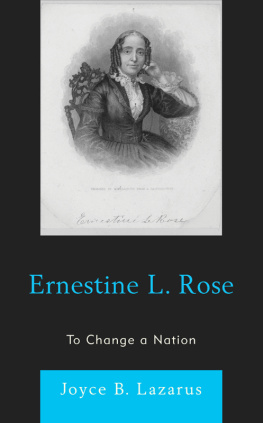
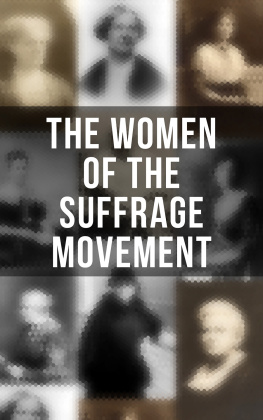
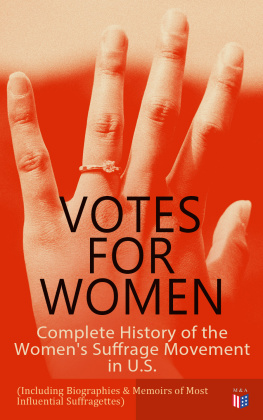
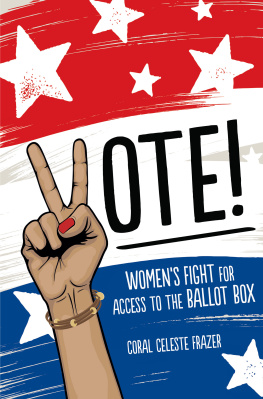
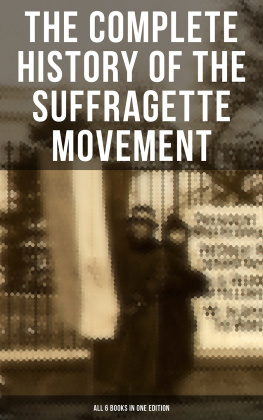


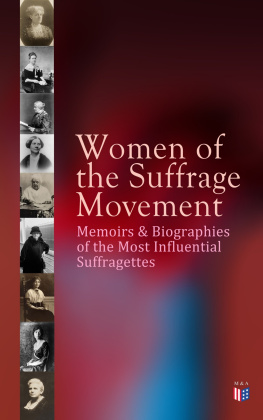
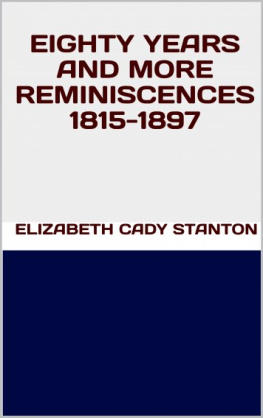

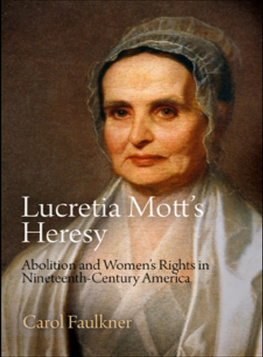

 The paper used in this publication meets the minimum requirements of American National Standard for Information SciencesPermanence of Paper for Printed Library Materials, ANSI/NISO Z39.48-1992.
The paper used in this publication meets the minimum requirements of American National Standard for Information SciencesPermanence of Paper for Printed Library Materials, ANSI/NISO Z39.48-1992.